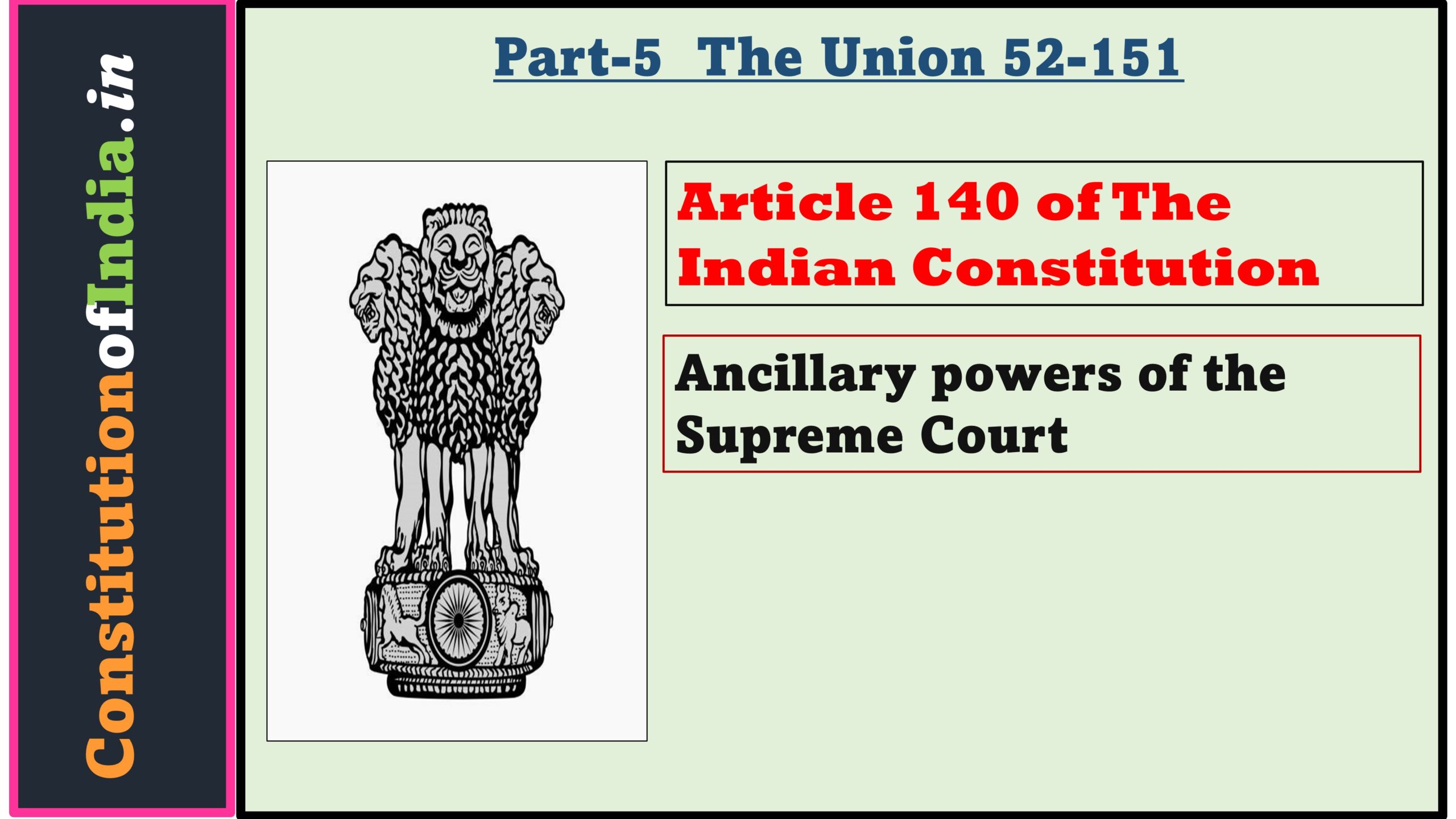Article 140 of Indian Constitution: Ancillary powers of Supreme Court.

Article 140 Ancillary powers of Supreme Court – Constitution Of India
140. Parliament may by law make provision for conferring upon the Supreme Court such supplemental powers not inconsistent with any of the provisions of this Constitution as may appear to be necessary or desirable for the purpose of enabling the Court more effectively to exercise the jurisdiction conferred upon it by or under this Constitution.
Article 140 – Ancillary Powers of the Supreme Court
Text:
“Parliament may by law make provision for conferring upon the Supreme Court such supplemental powers not inconsistent with any of the provisions of this Constitution as may appear to be necessary or desirable for the purpose of enabling the Court more effectively to exercise the jurisdiction conferred upon it by or under this Constitution.”
🔍 Key Points
- Legislative Authority
- Empowers Parliament to enact laws granting additional (ancillary) powers to the Supreme Court.
- Scope & Purpose
- These powers must be “not inconsistent” with any constitutional provision.
- They should aim to enhance the Court’s ability to exercise its existing jurisdiction—procedurally, administratively, or otherwise.
- Checks & Balance
- Cannot alter or override the Supreme Court’s constitutionally guaranteed functions.
- Any such law must respect the integrity and independence of the judiciary.
🗂️ At a Glance
| Aspect | Details |
|---|---|
| Who? | Parliament of India |
| What? | Power to confer supplemental powers upon the Supreme Court |
| Conditions | Must not conflict with any Constitutional provision |
| Why? | To enable the Supreme Court to more effectively exercise its constitution‑vested jurisdiction |
⚖️ Significance
- Flexibility: Allows the legislature to address practical or procedural needs of the Supreme Court without requiring a constitutional amendment.
- Supportive Role: Ensures the Court can be equipped—by statute—with tools (e.g., rules of procedure, special administrative powers) necessary for efficient justice delivery.
- Preservation of Independence: Any ancillary powers must leave intact the core constitutional provisions and the Supreme Court’s impartiality.